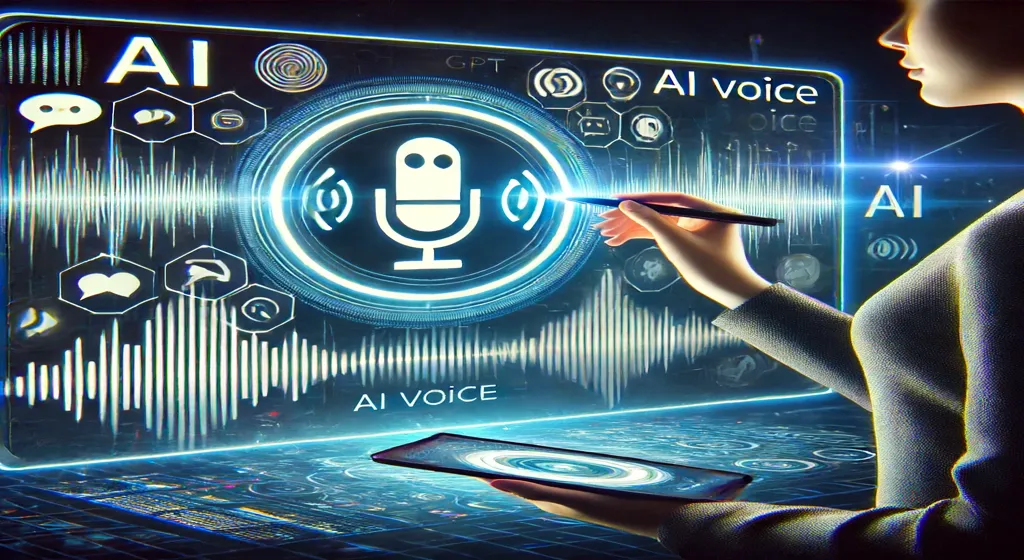ChatGPT AI Voice: What You Need to Know
In recent years, the conversational AI platform developed by OpenAI has garnered significant attention for its remarkable capabilities. This AI is designed to engage in sophisticated dialogues, generating human-like text across a vast range of subjects. Building on the success of its text-based interactions, OpenAI is poised to introduce AI voice generator tools, adding a new dimension of functionality and immersion to the user experience. This development marks an exciting evolution in how users interact with AI, promising to redefine the boundaries of digital communication. This article delves into how an AI voice tool could function in the near future, the implications of such advancements, and what users can expect from this groundbreaking technology.
The Rise of Chatbots
Chatbots have become synonymous with advanced artificial intelligence. Leveraging OpenAI‘s cutting-edge algorithms, machine learning, and natural language processing capabilities, these AI models have revolutionized human-AI interaction. They have showcased remarkable abilities in conversation, question answering, and task performance.
Since its debut, this platform has attracted a massive user base, with millions of users eager to interact with this conversational AI chatbot. Remarkably, it achieved over 1 million users shortly after its launch in November 2022.
Exploring AI Voice Potential
As a trailblazing generative AI chatbot, integrating speech functionality could vastly expand its capabilities and applications. OpenAI’s potential implementation of voice technology could transcend traditional text-to-speech methods, offering a more immersive and dynamic user experience. Here are some AI voice functionalities and features we might expect:
- Voice Commands: Users could control the AI through voice input, enabling hands-free interactions. This would be particularly useful in scenarios where typing is inconvenient or impossible, such as while driving or cooking.
- Voice Chat: Utilizing advanced text-to-speech technology, the AI could generate human-like voices in its responses, enhancing the conversational experience. This would make interactions feel more personal and engaging, bridging the gap between human and machine communication.
- Voice Cloning: OpenAI could introduce voice cloning, using AI to replicate a real person’s voice. This feature could have significant applications, from personalizing virtual assistants to creating lifelike digital avatars for various industries.
- Voice Over Generator: The AI might offer downloadable voice recordings for projects such as audiobooks, podcasts, or even video narrations. This could be a game-changer for content creators, offering high-quality voiceovers without the need for professional voice actors.
- Voice Assistants: Combining speech-to-text and text-to-speech, the AI could function as a versatile voice assistant, capable of performing a wide range of tasks, from setting reminders to providing real-time information, all through voice commands.
Potential Use Cases for AI Voice Generators
The potential use cases for AI voice generators are extensive and varied. Imagine a voice assistant capable of providing information, answering questions, or assisting with daily tasks entirely through voice interactions. Users could utilize the AI voice to narrate articles, read emails, or even serve as a virtual tour guide, providing contextual information in real-time. With voice control integration, the AI could adapt to various scenarios, catering to individual preferences and needs, making it an indispensable tool in both personal and professional settings.
Benefits of Launching an AI Voice Generator
Introducing an AI voice tool offers substantial benefits for both the platform and its user base. Firstly, it enhances the platform’s capabilities, making it an indispensable tool for businesses and individuals alike. As voice-based interactions become increasingly popular, integrating an AI voice generator would enable the platform to meet the evolving needs and preferences of users, ensuring it remains at the forefront of conversational AI innovation. This new dimension of functionality would reinforce the platform’s pioneering status in the field, solidifying its reputation as a leader in AI development.
Moreover, the addition of AI voice generator tools would make the platform a more versatile and user-friendly system. Voice-based interactions are intuitive for many users, providing a seamless and natural conversational experience. This technology would empower users with an enhanced AI assistant that feels more like a human conversation partner. It would also make the platform more accessible to users with reading difficulties, visual impairments, or those who simply prefer voice interactions over text.
The Future of AI Voice Integration
The integration of AI voice features promises to elevate the user experience to unprecedented levels. By enabling voice commands, users can interact more naturally and effortlessly with the AI, making it feel more like a personal assistant than a machine. Voice chat functionality would allow for more dynamic and engaging conversations, making the interactions feel more lifelike and responsive. Voice cloning could provide a personalized touch, allowing users to interact with AI that sounds like themselves or someone they know, adding a new layer of personalization to digital interactions.
Voice-over generators would open new possibilities for content creation, enabling users to produce high-quality audio content with ease. This could be particularly beneficial for industries like media, education, and entertainment, where high-quality audio content is in high demand. Additionally, voice assistants would expand the utility of the platform, offering assistance in a wide range of tasks, from managing schedules to providing real-time updates, making the AI an integral part of users’ daily lives.
Enhancing Accessibility and User Experience
One of the most significant advantages of integrating AI voice features is the improvement in accessibility. For users with visual impairments or reading difficulties, voice interaction provides an alternative and more inclusive way to use the platform. This inclusivity aligns with OpenAI’s mission to make artificial intelligence accessible to everyone.
Furthermore, voice interactions can enhance productivity by allowing users to multitask. For instance, professionals could use voice commands to manage their schedules, respond to emails, and retrieve information without needing to type. This hands-free capability can be particularly beneficial in situations where typing is impractical.
Leading the Way in Conversational AI
As the platform continues to evolve, the integration of AI voice features will likely solidify its position as a leader in conversational AI. The ability to interact through voice adds a layer of sophistication and usability that text-based interactions alone cannot provide. By embracing this technology, OpenAI ensures that its platform remains at the cutting edge of AI development.
The continuous advancements in AI voice technology will further enhance the platform’s capabilities, making it a more powerful tool for communication and information retrieval. Users can look forward to a more interactive, responsive, and versatile AI assistant that seamlessly integrates into their daily lives.
With the advent of more advanced versions, we can expect even more sophisticated and human-like interactions, pushing the boundaries of what conversational AI can achieve.
Conclusion
The potential for AI voice features to transform the platform is immense. From enhancing user interaction to expanding accessibility and productivity, the benefits are clear. As OpenAI moves towards integrating these features, the platform is set to become an even more indispensable tool for users worldwide. Embracing AI voice technology will not only enhance the user experience but also ensure that the platform remains a pioneer in the ever-evolving field of conversational AI.







